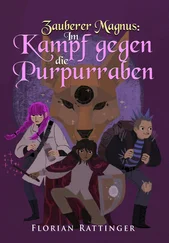Sylvie Germain - Magnus
Здесь есть возможность читать онлайн «Sylvie Germain - Magnus» весь текст электронной книги совершенно бесплатно (целиком полную версию без сокращений). В некоторых случаях можно слушать аудио, скачать через торрент в формате fb2 и присутствует краткое содержание. Год выпуска: 2008, Издательство: Dedalus Ltd, Жанр: Современная проза, на английском языке. Описание произведения, (предисловие) а так же отзывы посетителей доступны на портале библиотеки ЛибКат.
- Название:Magnus
- Автор:
- Издательство:Dedalus Ltd
- Жанр:
- Год:2008
- ISBN:нет данных
- Рейтинг книги:3 / 5. Голосов: 1
-
Избранное:Добавить в избранное
- Отзывы:
-
Ваша оценка:
- 60
- 1
- 2
- 3
- 4
- 5
Magnus: краткое содержание, описание и аннотация
Предлагаем к чтению аннотацию, описание, краткое содержание или предисловие (зависит от того, что написал сам автор книги «Magnus»). Если вы не нашли необходимую информацию о книге — напишите в комментариях, мы постараемся отыскать её.
Magnus — читать онлайн бесплатно полную книгу (весь текст) целиком
Ниже представлен текст книги, разбитый по страницам. Система сохранения места последней прочитанной страницы, позволяет с удобством читать онлайн бесплатно книгу «Magnus», без необходимости каждый раз заново искать на чём Вы остановились. Поставьте закладку, и сможете в любой момент перейти на страницу, на которой закончили чтение.
Интервал:
Закладка:
As for Berlin, he tries to recall the memories he has of the rare visits he made to that city when he was about seven, and he can only recollect a visit to the zoo, where Clemens took him one day. It was so unusual for his so-called father to spend time with him, that day left a deep impression on him, especially as his joy at finding himself alone at last with his ‘master of the night’ was immediately trampled over. At the foot of a huge statue of an iguanadon standing near the entrance to the zoo there was a young woman waiting, with a little boy of about three at her side. This visitor and his father had feigned surprise on seeing each other, as if their meeting was entirely due to chance. And this chance encounter so greatly pleased them they remained together for the rest of the outing. However, it was not the unwelcome presence of this talkative woman that spoilt his childish joy, but that of the youngster, a chubby-cheeked kid named Klaus, for whom the ‘master of the night’ showed a lot more concern and affection than he had ever shown for his own son.
He can visualize the enormous dinosaur rearing up on its hind legs, its head turned towards the branches of the trees, and beyond the foliage a flag flying from the front of a building, displaying in a vastly larger format the same black cross with bent arms as the one that adorned Dr Dunkeltal’s uniform.
He sees the odious cherub perched on his father’s shoulders or seated on his lap, and he himself is ignored yet again. He sees the giraffes, bears, elephants and bisons, the trees, rocks and large aviaries. He sees the kangaroos casually lying on their sides, some propped up on their forelegs like red hairy humans resting on their elbows. He sees a black rhinoceros with tiny staring eyes, standing motionless on a rise, apparently only its ears capable of movement, and a lion ceaselessly pacing its jail. He sees sparrows everywhere, inviting themselves with graceful insolence into the enclosures of the captive beasts, and a little mouse that scuttled across a path, instilling panic in some elegant women passing by, including his father’s friend — not at all frightened, incidentally, by the sight of wild beasts. But all these images come back to him in the blur of those tears of resentment and anger that clouded his eyes at the time.
What he sees very clearly, on the other hand, is a baby hippopotamus whose massive yawn greatly amused the woman and Clemens, and the name of that fat-faced hippopotamus cub with the gaping mouth also comes back to him: Knautschke. He remembers because he combined the name of the brat cosseted by his father with that of the young animal sprawled against the formless belly of its mother: he turned Klaus into Klautschke.
A few weeks after this visit Berlin was flattened, and nearly all the animals in the zoo were killed in the bombings. Had Klaustchke and his mother suffered the same fate as the caged beasts?
Europe does not have a monopoly on crime and violence. There are plenty of both in the United States, they proliferate throughout the world. President Kennedy is assassinated, the war drags on in Vietnam, riots break out in the black neighbourhoods of most of the country’s big cities, Martin Luther King in turn is shot dead by a fanatic. At the same time counter-currents build up, against a background of tumultuous music carrying forward a determined passion to live differently, to emerge from the ghettos, the quagmire of wars, the stifling oppression of a circumscribed and petty day-to-day existence. May throws herself into all these currents. Wherever things are stirring and a prospect of change is to be detected, wherever the pulse of the age quickens, she is there. ‘I have a dream,’ Martin Luther King repeated psalmodically a few years before he was killed. May picks up this interrupted dream and runs with it.
She has always tried to defy gravity and allow dreams to enter reality. This gained her at the age of fifteen the enduring resentment of her mother, Nora. Her parents had not been on good terms with each other for years, and her father, Lajos, had a relationship with another woman, Judith Evans, who was a friend of the family. Everyone knew but they all pretended not to know, for the sake of appearances. One day her father fell ill. Nora felt more satisfaction than anxiety at this sudden illness: her husband would be unable to see his mistress as long as he was confined to his bed. When his illness worsened, it would have been preferable for Lajos to go into hospital, but Nora opposed this, arguing he was better off at home with his family, and she demonstrated great devotion in looking after her ‘poor husband’. A genuine but fierce devotion, for though she was very zealous in caring for him, she was even more zealous in keeping him isolated. Even their daughter was only rarely allowed to go into the bedroom where her father was resting, and was not to be tired.
Her father was not resting, he was dying a slow death. And in his long agony he asked to see Judith. He begged. Nora gently wiped his face, gave him a drink, stroked his hand, merely repeating in a voice full of solicitude, ‘Don’t talk, Lajos, lie quietly, I’m taking care of you, everything’s fine …’ And when, towards the end, he breathed in a whisper Judith’s name, wanting to shout it, she responded ingenuously, ‘I’m here, my darling.’
Judith Evans had called round twice, with the excuse of making a friendly visit to get news of the invalid. Nora received her with implacable politeness, imposing on her the torture of being served tea, when every gesture, every look, were considered and calculated, and a conversation whose every phrase consisted of sickeningly bland stupid clichés punctuated with acerbic silences. Unaware of the seriousness of his condition, during her first visit Judith had hoped to see Lajos, that he would come down from his room. Sensing this desire in the woman she hated and finally held in her power, Nora dashed this expectation with a few words: ‘It’s impossible, he’s asleep and doesn’t want to be disturbed by anybody.’ The second time, Judith dared to express her desire. ‘I’d like to see him …’ Nora slowly drank a sip of tea, daintily set down her cup. Judith’s thudding, racing heartbeat could be heard in the silence of the drawing room. And with a sorrowful gracious smile the lady of the house delivered her blow: ‘It’s too late now. He doesn’t recognize anyone. Thank you for your visit.’ And she rose, adding with unfailing graciousness, ‘I’ll see you to the door.’ Judith rose in turn, ghastly pale, her lips trembling. It was then that May, who witnessed this scene, intervened. ‘Come,’ she said, taking Judith Evans by the hand. And before her mother had time to react, she had rushed Judith out of the room, locking the door behind her, led her upstairs, and taken into her father’s bedroom the woman he loved.
‘I have a dream.’ Dreams are meant to become part of reality, forcing their way in with violence if necessary. They are meant to re-infuse it with energy, light, freshness, when it gets mired in mediocrity, ugliness and stupidity. The heartbeats of a woman stricken with the panic of love had released in May the will for total independence, as well as unfailing reserves of pluck.
Sequence
One day the South will recognize its real heroes … They will be old, oppressed, battered Negro women, symbolized in a seventy-two-year-old woman in Montgomery, Alabama, who rose up with a sense of dignity and with her people decided not to ride segregated buses, and who responded with ungrammatical profundity to one who inquired about her weariness: ‘My feets is tired, but my soul is at rest.’
Martin Luther King
Letter from Birmingham Jail, 16 April 1963
You cannot understand
Читать дальшеИнтервал:
Закладка:
Похожие книги на «Magnus»
Представляем Вашему вниманию похожие книги на «Magnus» списком для выбора. Мы отобрали схожую по названию и смыслу литературу в надежде предоставить читателям больше вариантов отыскать новые, интересные, ещё непрочитанные произведения.
Обсуждение, отзывы о книге «Magnus» и просто собственные мнения читателей. Оставьте ваши комментарии, напишите, что Вы думаете о произведении, его смысле или главных героях. Укажите что конкретно понравилось, а что нет, и почему Вы так считаете.












